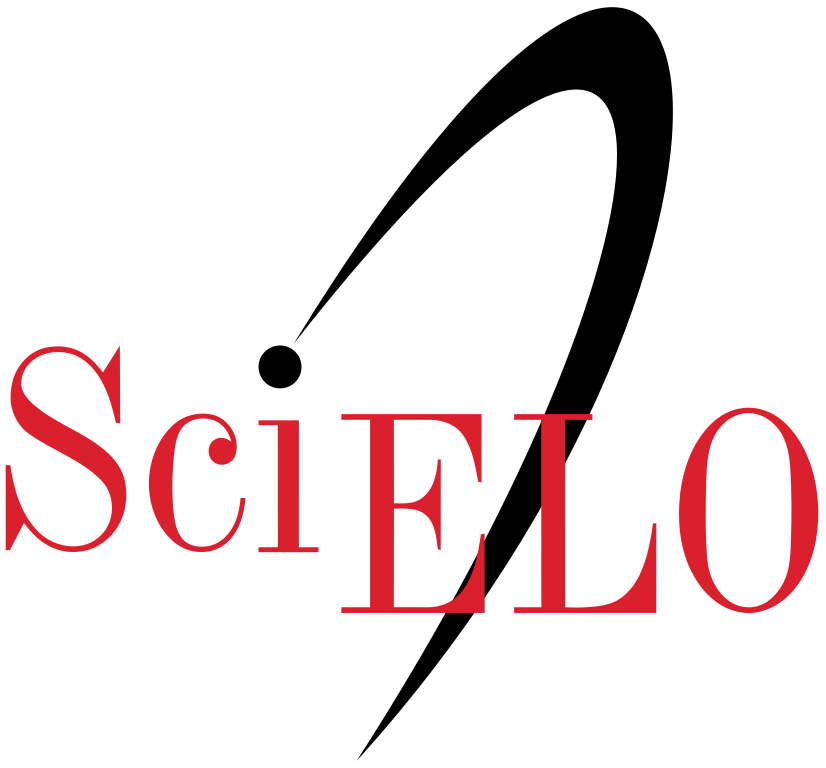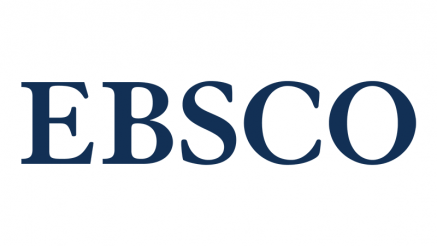Indexaciones








Ingeniería y Desarrollo is a refereed scientific journal whose main objective is to diffuse among members of the academic and professional community of engineering and basic science, the results of scientific and technological research in all fields and specialties of the engineering.
The journal focuses with special interest in research that, without losing the global nature of science, dealing with the impact of engineering on technical, social and economic progress of the developing countries, as well as innovative techonological developments that contribute to the practical solution of social problems. As the complexity of these problems requires in many cases the contribution of different areas of knowledge, Revista Ingeniería y Desarrollo receives articles written by interdisciplinary teams as long as the topics covered are relevant and directly related to the purpose described.
Since 1995, the Revista Científica Ingeniería y Desarrollo publishes twice a year original research articles, technical notes, articles of reflection and revisión, in spanish, english or portuguese; the articles of reflection and revisión are limited to those authors to denote a wide experience in the field, backed by prolific intelectual productions. The journal is available both in print and digital.
The Revista Científica Ingeniería y Desarrollo invites students, teachers, researchers and engineers to link with the journal, as readers, authors or reviewers. The rules for authors and reviewers are available on http://rcientificas.uninorte.edu.co/index.php/ingenieria.
For your information, then we present the Ethical Standards governing the journal Ingeniería y Desarrollo:
Ethical Standards
Currently, Universidad del Norte publishes 10 journals. Publication of an article in an academic peer-reviewed journal serves several functions, one of which is to validate and preserve the “minutes” of research. It is therefore of great importance that these “minutes” are accurate and trustworthy. The act of publishing involves many parties, each of which plays an important role in achieving these goals. It therefore follows that the author, the journal editor, the peer-reviewer, and the publisher have responsibilities to meet expected ethical standards at all stages in their involvement from submission to publication of an article.
Universidad del Norte is committed to meeting and upholding standards of ethical behavior at all stages of the publication process. We follow closely the industry associations, such as the Committee on Publication Ethics (COPE), International Committee of Medical Journal Editors (ICJME) and World Association of Medical Editors (WAME), that set standards and provide guidelines for best practices in order to meet these requirements.
Below is a summary of our key expectations of editors, peer-reviewers and authors, which adhere to the publication ethics and malpractice policies outlined by COPE. More extensive resources are available from COPE and (WAME) .
.
1. ETHICAL EXPECTATIONS
Editors’ responsibilities
· To act in a balanced, objective and fair way while carrying out their expected duties, without discrimination on grounds of gender, sexual orientation, religious or political beliefs, ethnic or geographical origin of the authors.
· To handle submissions for sponsored supplements or special issues in the same way as other submissions, so that articles are considered and accepted solely on their academic merit and without commercial influence.
· To adopt and follow reasonable procedures in the event of complaints of an ethical or conflict nature. To give authors a reasonable opportunity to respond to any complaints. All complaints should be investigated no matter when the original publication was approved. Documentation associated with any such complaints should be retained.
Reviewers’ responsibilities
· To contribute to the decision-making process, and to assist in improving the quality of the published paper by reviewing the manuscript objectively, in a timely manner
· To maintain the confidentiality of any information supplied by the editor or author. To not retain or copy the manuscript.
· To alert the editor to any published or submitted content that is substantially similar to that under review.
· To be aware of any potential conflicts of interest (financial, institutional, collaborative or other relationships between the reviewer and author) and to alert the editor to these, if necessary withdrawing their services for that manuscript.
Authors’ responsibilities
· To maintain accurate records of data associated with their submitted manuscript, and to supply or provide access to these data, on reasonable request. Where appropriate and where allowed by employer, funding body and others who might have an interest, to deposit data in a suitable repository or storage location, for sharing and further use by others.
· To confirm that the manuscript as submitted is not under consideration or accepted for publication elsewhere. Where portions of the content overlap with published or submitted content, to acknowledge and cite those sources. Additionally, to provide the editor with a copy of any submitted manuscript that might contain overlapping or closely related content.
· To confirm that all the work in the submitted manuscript is original and to acknowledge and cite content reproduced from other sources. To obtain permission to reproduce any content from other sources.
· Authors must guarantee that any studies involving human or animal subjects conform to national, local and institutional laws and requirements (e.g. WMA Declaration of Helsinki, NIH Policy on Use of laboratory Animals, EU Directive on Use of Animals) and confirm that approval has been sought and obtained where appropriate. Authors should obtain express permission from human subjects and respect their privacy.
· To declare any potential conflicts of interest (e.g. where the author has a competing interest (real or apparent) that could be considered or viewed as exerting an undue influence on his or her duties at any stage during the publication process).
· To notify promptly the journal editor or publisher if a significant error in their publication is identified. To cooperate with the editor and publisher to publish an erratum, addendum, corrigendum notice, or to retract the paper, where this is deemed necessary.
Publisher responsibilities
· Universidad del Norte shall ensure that good practice is maintained to the standards outlined above.
2. PROCEDURES FOR DEALING WITH UNETHICAL BEHAVIOUR
Identification of unethical behavior
· Misconduct and unethical behaviour may be identified and brought to the attention of the editor and publisher at any time, by anyone.
· Whoever informs the editor or publisher of such conduct should provide sufficient information and evidence in order for an investigation to be initiated. All allegations should be taken seriously and treated in the same way, until a successful decision or conclusion is reached.
Investigation
· An initial decision should be taken by the editor, who should consult with or seek advice from the publisher, if appropriate.
· Evidence should be gathered, while avoiding spreading any allegations beyond those who need to know.
Minor breaches
· Minor misconduct might be dealt with without the need to consult more widely. In any event, the author should be given the opportunity to respond to any allegations.
Serious breaches
· Serious misconduct might require that the employers of the accused be notified. The editor, in consultation with the publisher, should make the decision whether or not to involve the employers, either by examining the available evidence themselves or by further consultation with a limited number of experts.
Outcomes (in increasing order of severity; may be applied separately or in conjunction)
· Informing or educating the author or reviewer where there appears to be a misunderstanding or misapplication of acceptable standards.
· A more strongly worded letter to the author or reviewer covering the misconduct and as a warning to future behaviour.
· Publication of a formal notice detailing the misconduct.
· Publication of an editorial detailing the misconduct.
· A formal letter to the head of the author’s or reviewer’s department or funding agency.
· Formal retraction or withdrawal of a publication from the journal, in conjunction with informing the head of the author or reviewer’s department, Abstracting & Indexing services and the readership of the publication.
· Imposition of a formal embargo on contributions from an individual for a defined period.
· Reporting the case and outcome to a professional organisation or higher authority for further investigation and action.
SOURCE
http://publicationethics.org/files/u2/New_Code.pdf
http://publicationethics.org/resources/guidelines
Initial review of the manuscript
The evaluation process for the Revista Ingeniería y Desarrollo begins with a preliminary review of the article by the editorial team. It is feasible, but not likely, that the manuscript could be accepted at this stage of evaluation. Manuscripts that are rejected at this stage may be insufficiently original, may have serious scientific and grammatical errors, may not be drafted within the scope and theme of the journal or may not comply with the Publishing Standards. Authors of manuscripts rejected at this stage must be notified within one month of the date of receipt, and the notification email should be accompanied by a checklist detailing the criteria regarding why the manuscript did not comply under the Publishing Standards. Authors should revise the manuscript according to suggested changes.
Review by peer reviewers
If the manuscript meets the Publishing Standards, the article proceeds for review by two expert reviewers. This journal employs double-blind reviewing in which the authors and peer reviewers remain anonymous throughout the process. The peer reviewers are assigned to the paper according to their expertise in the subject. We accept suggestions for peers from the authors without any commitment from the journal.
Peer reviewers should consider the following guidelines:
Evaluation Results
The peer reviewer sends a report to the editor with the results of the evaluation, as well as their recommendation regarding the publication of the article. This process will take up to three months. When there are conflicts of interest, reviewers are obliged to report them promptly to the publisher. The editor later informs the author of the recommendations suggested by the reviewers. The author may have the opportunity to send a revised article to be reviewed by a peer.
Final Decision
The editor accepts or rejects an article based on the information provided during the evaluation process. The Final decision is communicated to the author within six months.
This journal provides immediate open access to its content because making research freely available to the public supports a greater global exchange of knowledge.
All articles published in our "Ingeniería y Desarrollo" journal are under the Creative Commons CC BY 4.0 license.

Since 1995, the Revista Científica Ingeniería y Desarrollo publishes semiannually a wide variety of articles in Spanish, English or Portuguese; which in the last years it has limited for original research articles and technical notes, as well as articles of reflection and revision.
Indexaciones








